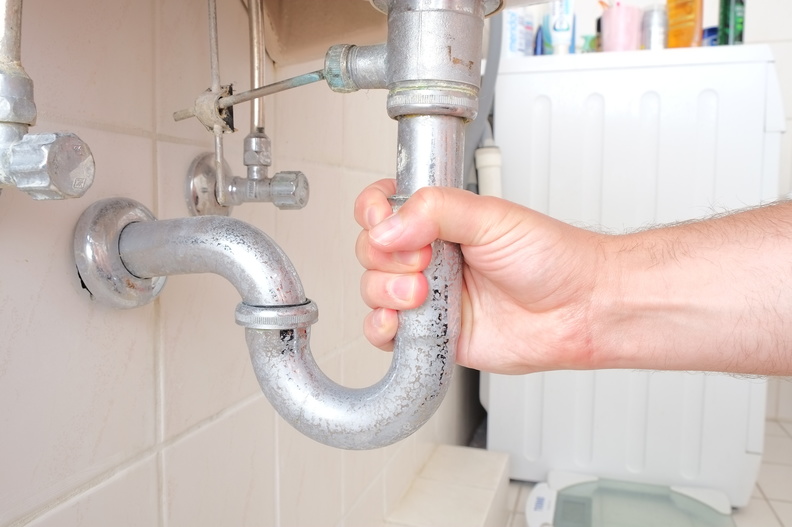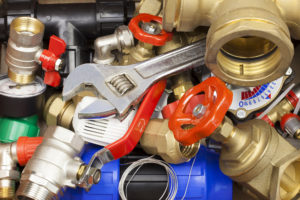Almost everyone will have their personal views when it comes to What to Do During a Plumbing Emergency.

Pipes emergencies can strike any time, causing stress and prospective damages to your home. Whether it's a ruptured pipe, a clogged up drain, or a leaky faucet, understanding just how to handle the situation up until a professional plumbing professional shows up can conserve you from further issues. This post offers vital emergency situation pipes tips to help you minimize damage and regain control throughout a plumbing situation.
Shut off the Supply Of Water
The very first step in any kind of pipes emergency situation is to shut down the supply of water. For localized problems, such as a leaking faucet or bathroom, switch off the valve near the fixture. In the case of a major leak or ruptured pipeline, situate your home's major water shut-off shutoff and transform it off instantly. Understanding the place of these shutoffs in advance can save valuable time during an emergency situation.
Address Small Leakages with Short-lived Solutions
Little leakages can rapidly come to be considerable problems if left unchecked. Make use of these short-lived solutions until expert assistance gets here:
While these repairs aren't permanent, they can help reduce water loss and damage.
Unclog Drains Pipes Safely
A clogged up drain can be a discouraging and messy problem. Below's how to tackle it:
If these methods do not work, stay clear of utilizing excessive force, as it might intensify the blockage.
Handle Overflowing Toilets
An overflowing commode can trigger immediate disorder. Right here's what you need to do:
Shut down Your Water Heater
In certain emergency situations, such as a burst pipeline, it's smart to shut off your hot water heater. This protects against overheating or damages to the device when water quits flowing. Shut off the power supply to the water heater (electric or gas) and let it cool off to avoid possible hazards.
Briefly Stop a Ruptured Pipe
A burst pipe can bring about substantial water damage in mins. To alleviate the problem:
Call a professional plumbing quickly to deal with the problem completely.
Take Care Of Frozen Pipeline Very Carefully
In cooler environments, frozen pipes are a typical emergency situation. If you believe an icy pipeline:
Stop More Damages
Taking fast action to lessen damage can save you time and money in the future. Below's how:
. Have an Emergency Pipes Kit
Prepare a standard plumbing emergency situation set to handle minor issues effectively. Your package ought to include:
Having these tools handy can make a substantial difference in your ability to take care of emergencies.
Know When to Call a Professional.
While quick fixes can aid temporarily, specific plumbing issues require immediate specialist interest. Call a plumbing professional if:.
Promptly contacting a specialist guarantees the issue is settled properly and prevents more problems.
Verdict.
Plumbing emergencies can be frustrating, but with the appropriate knowledge and devices, you can manage the scenario successfully till help gets here. By shutting off the water supply, attending to small leaks, and making use of momentary fixes, you can minimize damages and keep your home safe. Remember, these pointers are short-term solutions; constantly seek advice from a licensed plumbing professional to deal with the root cause of the trouble. Preparation and fast thinking are your ideal allies in any type of plumbing emergency.
8 Helpful Tips for Managing Plumbing Emergencies at Home
If your plumbing system hasn’t failed once, wait for it because almost everyone has a story to tell. Sometimes, it could be simple emergencies such as a leaking pipe, a blocked cistern, or even a big burst pipe. In situations like this, you need to have some handy tips to save you some money and from possible damages.
Take care of minor issues early.
Sometimes, you could have avoided an emergency by taking proactive measures while it was still early. Some major plumbing emergencies can be a result of an ignored minor issue. We recommend that you have items like plumbing tapes and other related items. A plumbing tape can allow you to manage minor leaks before the plumber arrives.
Cut off the water supply.
This tip is essential in almost any type of leakage problem. For problems like minor leakages in the toilet or kitchen, turn off the supply that takes water to the affected pipes. If the leakage is a major pipe, you must shut off the supply valve to the entire building. This will help you avoid flooding your home and neighbors if you share a flat.
Know your plumbing system
Folks typically move into a new apartment without understanding the water supply around the building. This can prove disastrous if a water emergency arises and the plumber is far away. The previous tip will prove useless if you don’t practice this one. More importantly, know where your water shut-off valve is located – you’ll need that knowledge to prevent potential home floods.
Have some common handy tools
There are lots of plumbing emergencies that you can handle without hiring a plumber. That’s why you must keep some tools available always. Some tools that you can use to fix simple plumbing emergencies easily include plumbing tapes, screwdrivers, thread seal tapes, plungers, pliers, tape measures, and rubber gloves.
Insulate your pipes from cold
You’ll save yourself from many plumbing expenses if you protect your water pipes from the cold. This is because of the harmful effects that cold weather can have on your pipes. During winter, your pipes can burst from being overly expected to freezing temperatures. So, make sure insulators are there to keep the pipes working correctly.
Avoid practices that will clog your toilet.
Many people indulge in practices that can damage the plumbing system of the entire building. One of these is when they use their toilet to dispose-off garbage. They flush all kinds of things, such as paper towels, bandages, hairs, female sanitary products, etc., down the toilet. This will block your toilet in the long run, incurring unnecessary expenditures. Dump such waste in the trash instead.
Check your dials regularly.
Sometimes, there could be leakages in your home without noticing them in time. So, constantly monitor your water meter dial. If the dial is reading when there is nobody using water, this is an indicator that there is leaking. Check for leaks immediately. Call a plumber as soon as possible if you can’t find any.
https://www.constructionplacements.com/8-helpful-tips-for-managing-plumbing-emergencies-at-home/

Do you like more info about What to Do While Waiting for an Emergency Plumber? Make a comment directly below. We would be glad to know your reactions about this piece. We are looking forward to see you back again in the future. So long as you liked our blog post kindly do not forget to pass it around. Thank you so much for your time invested reading it.
Click For More Information